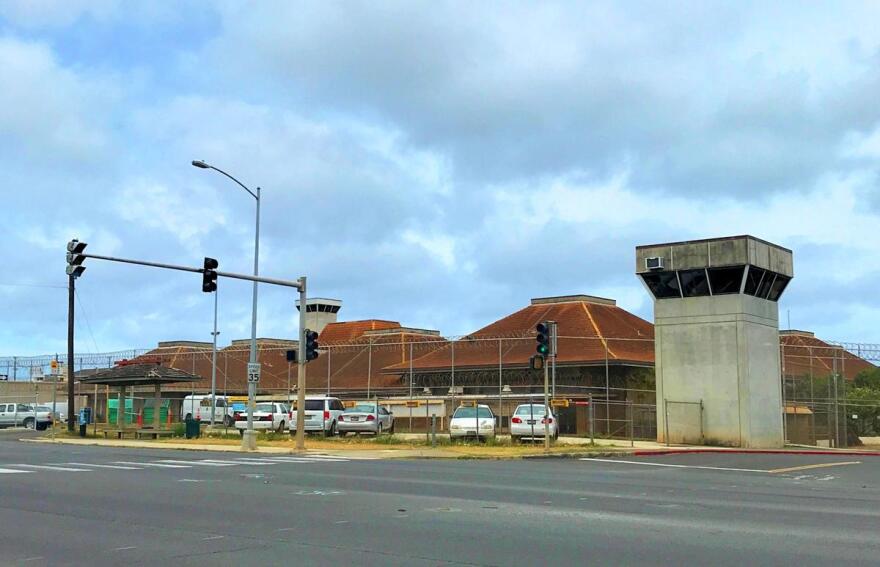Some pre-trial detainees are held in jail because they can’t afford bail. So Hawaiʻi bail reform advocates have launched an initiative to help secure bail and reentry services for them. The initiative comes as Gov. David Ige mulls over a measure that would eliminate cash bail for pre-trial detainees accused of nonviolent crimes.
Bail reform advocates are soliciting bail support requests from family, friends, and organizations representing those in jail who can’t afford to bail out.
Soon Kim is an organizer with the group Faith in Action for Community Equity, or FACE, a partner in the mass bailout initiative.
"The mass bailouts are contingent on community power. How it worked in the past is the Hawaiʻi Community Bail Fund will provide the funds where we can actually post bail for our incarcerated neighbors. Once they’re released, then this is where we hold space for them, that’s when we learn their stories, and that conversation ends with 'How can we support you?'" Kim said.
Mass bailouts are held twice a year — once in June for Juneteenth and once in November for Lā Kūʻokoʻa or Hawaiian Independence Day.
The current bailout runs through June 30 and is a collaboration of three groups: FACE, the Hawaiʻi Community Bail Fund, and Oʻahu Mutual Aid.
"Because we have all these relationships we’ve built in the community, we’re able to connect them with the resources that will support, first of all, them making it to trial. But also the reason why they’re in there in the first place, because they’re underserved because they were abandoned systemically. When the system doesn’t work, the community comes through," Kim told HPR.
Volunteers are being recruited to provide community support during the bailout.
Monetary donations to the bail fund and in-kind donations to Oʻahu Mutual Aid are also being accepted.
"The supplies we usually need are packaged foods, clothing, bottled water, and Holo cards preloaded with bus fare to name a few. For people who are able to make it in person, they can help distribute material aid. They can help with some of the paperwork and notetaking so we can later work to connect them with a larger service provider," Kim said.
The initiative comes as Gov. David Ige mulls over a bill that would eliminate cash bail for defendants accused of non-violent crimes.
Carrie Ann Shirota, policy director for the ACLU Hawaiʻi, says the measure isn’t necessarily sweeping reform, but it’s a start.
"So the bill itself would result in very modest amount of releases. But what I think is important is the larger issue of bail reform. The fact of the matter is that we have an unequal and unjust criminal pretrial system," Shirota said.
"A person who is legally innocent can be detained, removed from their family, removed from their jobs, community, just because they cannot afford cash bail. And that’s fundamentally unfair. It’s unjust and our system shouldn’t be based upon wealth," she said.
House Bill 1567 was passed by the state Legislature this year despite opposition from the state Attorney General’s office and prosecutors from Hawaiʻi, Honolulu, and Maui counties.
On Monday, June 27, Ige announced his intent to veto the measure. He has until July 12 to make a final decision.
"The bill does not adequately address several important issues, including the need to secure the appearance of defendants and it deprives judges of the ability to exercise discretion on a case-by-case basis," Ige wrote in his Intent to Veto list. "The bill would mandate the automatic release of defendants that are charged with class C felonies that pose significant risks to public safety, such as felon in possession (firearm), burglaries in the second degree, arson in the third degree, riot, cruelty to animals, promoting a controlled substance in, on, or near schools, and extortion in the second degree."






